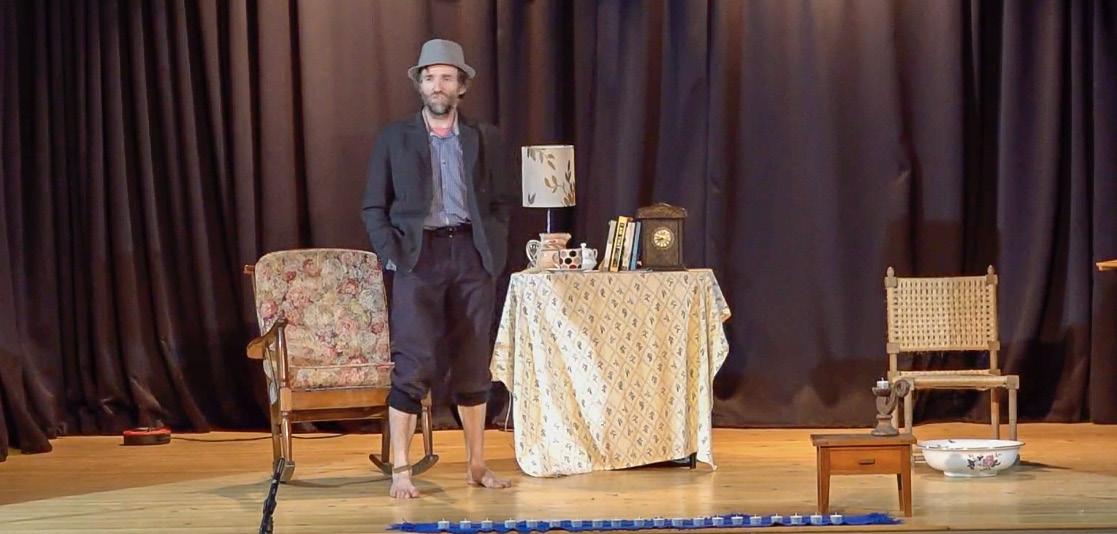Local Legend
DUHALLOW LOCAL LEGEND - David O’Connor We talk to a ‘Local Legend’. They get to share their experience and thoughts regarding living in Duhallow through the past, present and future. In this issue, we have altered the format slightly to feature words sent to us by a David O’Connor, England, who is a former inhabitant of Kanturk and has subsequently resided in England for seven decades. Inspired by our feature on Jack Roche in Issue 57, David has shared his memories of his time living in Kanturk.
My name is David O’Connor, now living in Derbyshire, East Midlands England. I have been here since 1951 when I emigrated aged 19 years old to find work. In those days, even though Kanturk was a thriving and very busy town, there was no work of any kind. I was born and raised at number 1 Greenane Lane, Kanturk. I was one of nine children, five sisters and three brothers. Sadly only one sister (aged 74, who still lives in kanturk) and I are still alive. My father, Daniel O’Connor, was Kanturk’s town postman all his life. In those days, there were two schools one which was run by the ‘nuns’ where you started when you were age 5, and then you moved up to the boy’s school on Percival Street ‘til you left when you were 14 years old. I left school on the Friday and started my first job at the local post office on Strand Street. My pay was 15 shillings a week, and the hours were 9am until 6pm Monday to Saturday and 9am until 12noon on a Sunday. I stuck the job for about 12 months and then went to work at the local printing works which used to be winters, that is when ‘winters were winters’ with deep snow drifts
at Watergate Street where I was paid £1 a week for six days. It was slave labour, but you had no choice in those days - there was no benefits of any kind. I sometimes think how we survived, but everybody was in the same boat. Reading about the chap (Jack Roche in Discover Duhallow Issue 57) who said he worked for the E.S.B - I was one of the workers who laid those poles, it was very hard work. The foreman would take a gang of us out into the country and drop one of us off in a field. He gave you a pick and shovel, and you had to dig a hole six feet deep. You had to have it done before he came back at around 5pm. It was very hard work as sometimes the ground was full of roots and if you hadn’t finished it, you were dismissed there and then. I then worked at Mallow ‘sugar beet factory’ where I did 3 campaigns, working regular nights, they lasted 3-4 months, the pay was 5-9 shillings for 7 nights, there was no extra pay for night work, Saturdays, or Sundays. I worked regular nights, never had a single day off and when they finished you, they gave you no holiday pay, so you had to wait until they sent for you again, which is why so many people emigrated. I had to cycle 12 miles each way. Bearing in mind after completing an 8-hour night shift, I had to cycle 12 miles home, and this was in the height of severe
along the side of the roads. I wore a big thick army coat to keep warm, but this had its downside with the weight and pedalling. My Mother used to knit socks and I wore them on my hands to keep warm. The only good thing about the cycle journey was that there was no traffic on the roads. Reading in the February issue about ‘Fitzpatricks’ bought back many happy memories. There was a chap named Mike O’Sullivan who lived a couple of doors down from me in Greenane, and in the school holidays he would take me out and he did that for all the time when I was at school. The part about the ‘Van’ also bought back many happy memories; I can remember on one occasion when he said to me “you have seen in a casino how they spin a roulette wheel with one finger and how it goes round and round I have my own wheel in my van”. The amazing thing was he never had a single accident. Speaking of Mike O’Sullivan and another chap called Terry Bourke who lived up Newmarket Road, they were the first guys to introduce soccer in Kanturk, which in those days was a taboo subject anybody caught playing soccer was banned for life from playing Gaelic football but a lot of them who loved to play soccer would get around it by volunteering to play (soccer) when the soccer team were playing away. The soccer team had to play away every
16
DiscoverDuhallow@irdduhallow.com
Issue 60 March 25, 2022




















